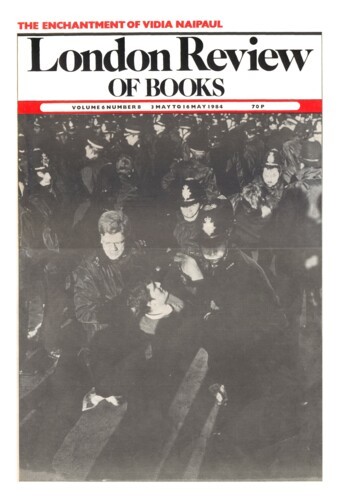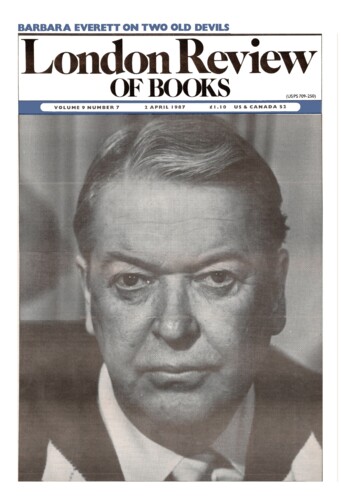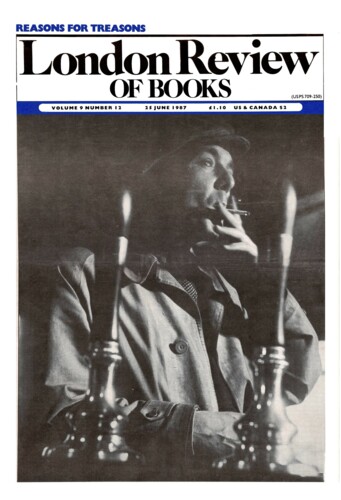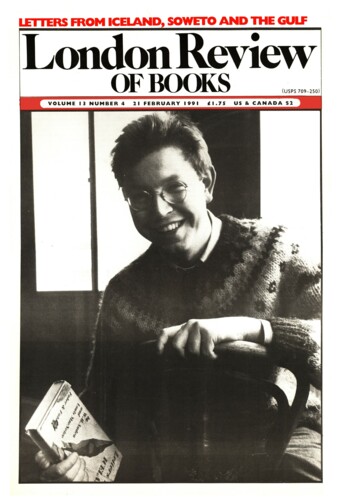Story: ‘Melchior’
Francis Spufford, 3 May 1984
In early spring of 1904 the blue limousine draws up beneath the baroque convent of Melk. There is snow on the ground; it is a crisp, bright day; the chauffeur drops one of the patented thermos-flasks as he carries the picnic up the hill in the wake of the family and it breaks, staining the snow a rich vegetable mulled-wine red. The family ensconce themselves in rugs and overcoats on the snow just below the gentle crest of the hill which hides the yellow walls of the convent from sight. Uncle Joseph trots to this crest for a moment to admire the view and architecture, before returning to where they have already laid out the food – all hot, all sensible – and started to chatter. Back at the car the chauffeur is leaning against the engine, which he has swathed in an enormous horse-blanket, just in case, and has lit a popular brand of cigarette, which he smokes hands deep in pockets. The well-wrapped-up four-year-old has run several times around the party, almost knocking over the soup, and now makes for the pinewood which climbs the valley to the left of the picnic. On the other side of the valley the ice-floes move slowly down the Danube; the family are glad that they can enjoy their picnic and be gone, insulated from the ground by several layers of wool, fur and leather, for the nights here are very, very cold, and there are still unexterminated wolves unconscious of the etiquette of picnics. The talk turns to painting. Aunt Paula, who is sometimes a watercolourist, explains principles of composition, while Uncle Joseph promises to visit some of the galleries in Vienna the others recommend to him. Meanwhile the four-year-old has been brought back from the pinewood by his nurse. He is clutching three finely-elongated pine-cones, which he gives, solemnly, to his mother. Thank you, pigling, she says. Perhaps he is a truffle-hunting pigling, offers Aunt Paula. No, says the child’s father, punning on the place-name: he is Melchior, bringer of gifts.–





